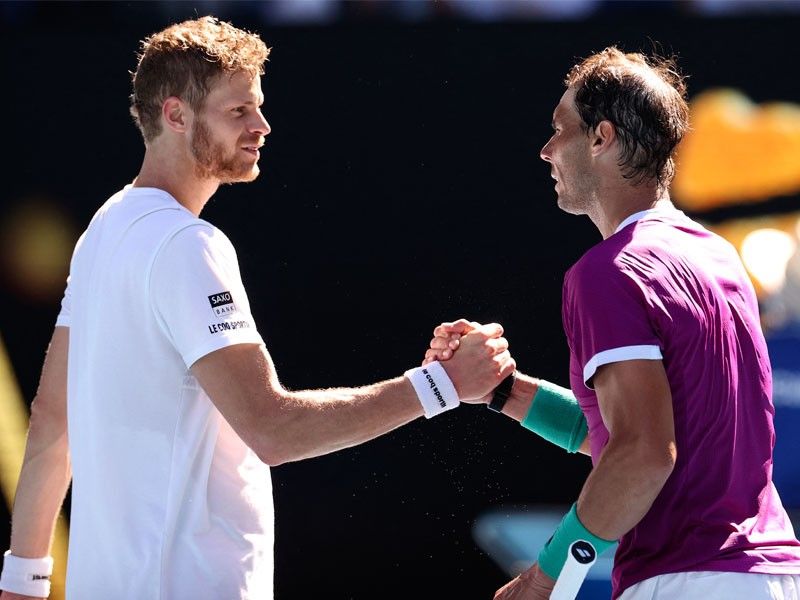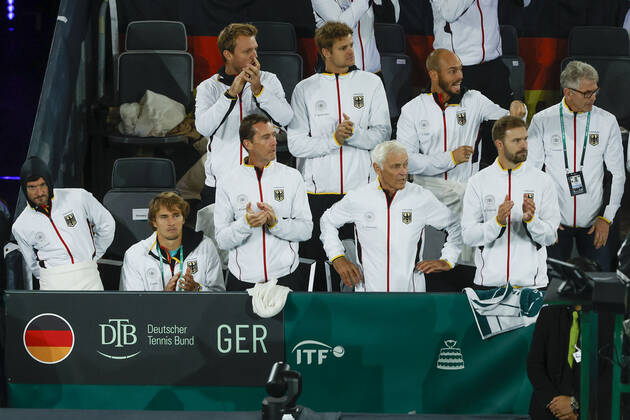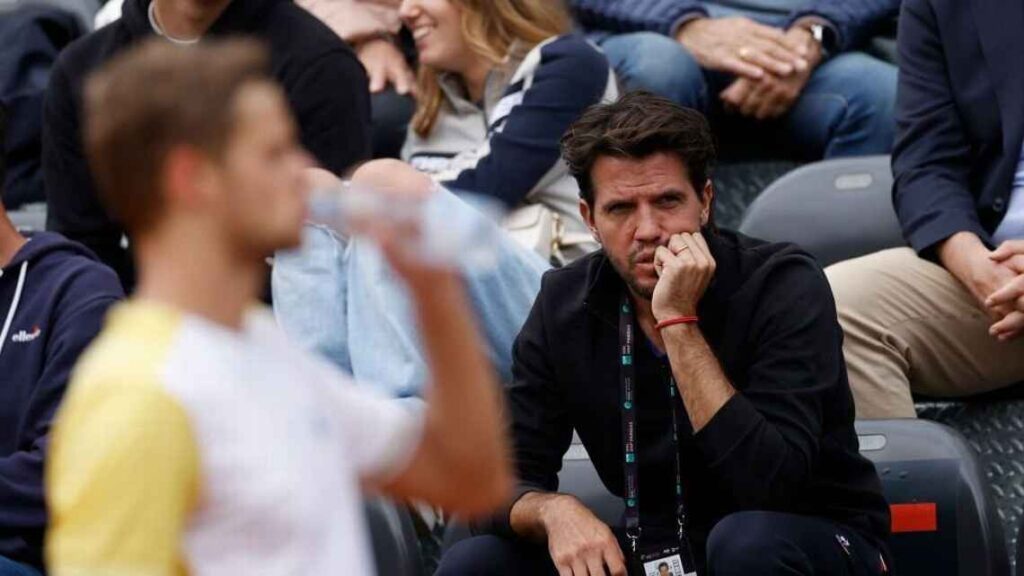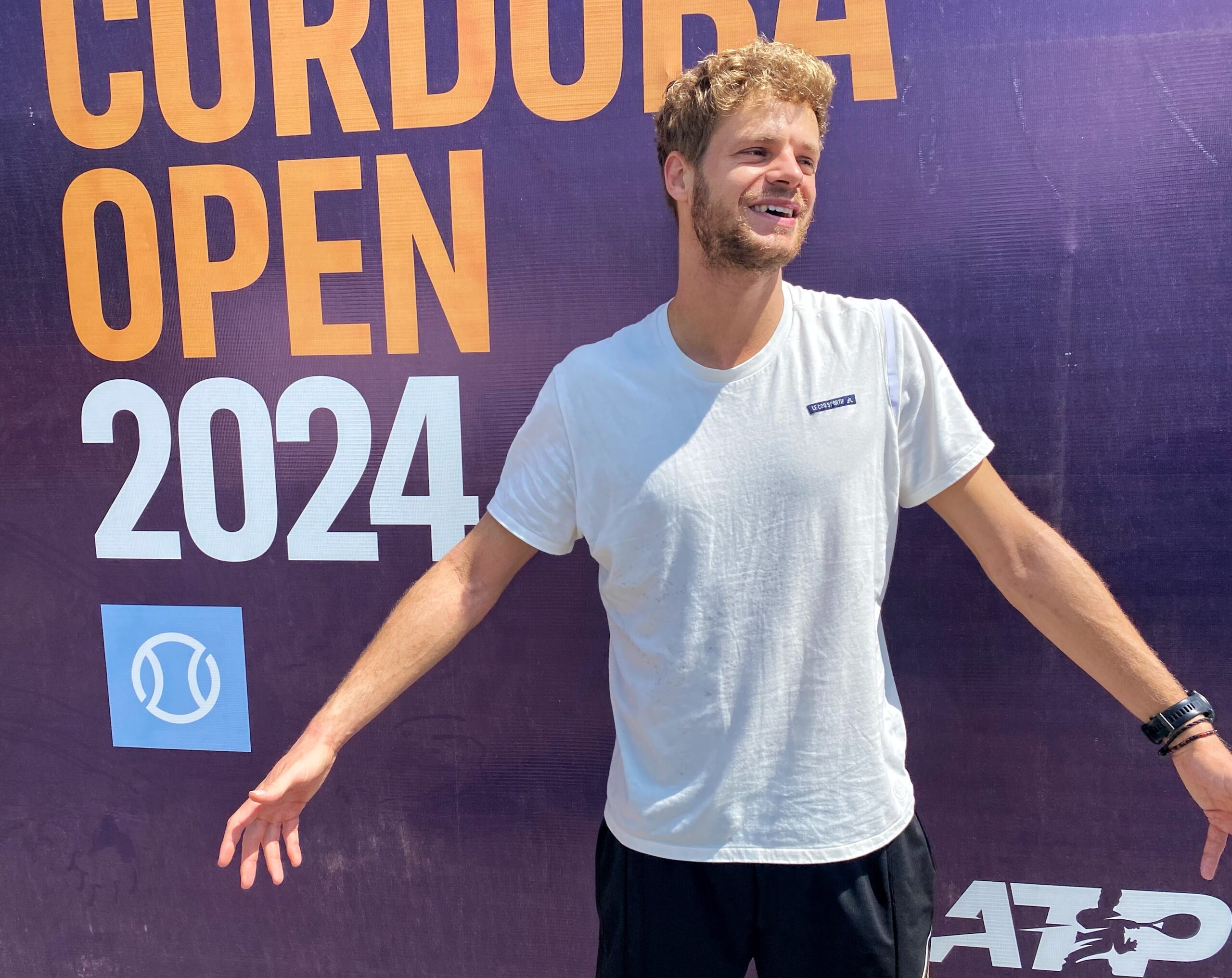Better to wait for what the German judiciary has to say before talking further about Alexander Zverev’s case, believes Yannick Hanfmann, a teammate of the world No. 5 on Germany’s Davis Cup team.
“Zverev has a trial in May. If he is innocent we don’t have to talk about it anymore; if he is guilty, we probably have to remove him from the Players’ Council,” Hanfmann said in this interview with CLAY, which took place in Cordoba, during the Latin American swing.
Zverev will be judged by a German court after being accused by his ex-partner of domestic violence. Hanfmann respects the judicial process, and also in the work of the ATP to be able to deal with these issues on a general level. “I trust the ATP, that they can resolve these issues so that we never have them again in tennis. It’s a bad light for us. Hopefully whatever happens with Sascha is nothing. I hope we players are good guys,” he reflected.
[ CLAY read for free. But if you can, please make a contribution here so we can keep telling you the great #TennisTales around the world. It’s very easy and quick – thank you! ]
He is also honest about what he considers to be “the hardest job in tennis”: playing against Rafael Nadal on the main stadium at Roland Garros, a challenge he had to face in the first round of the 2019 edition of the French Open. “Nadal plays a very different ball than any other player on the tour,” explained the 32-year-old tennis player.
Interview with Yannick Hanfmann
– You played Nadal in the Phillippe Chatrier. Is it the toughest match in tennis history?
– I think so. I think to play Rafa on that court is probably the toughest job in tennis. Or was, I don’t know. I felt weird when I saw I got Rafa in the first round. Because I played really well in qualifying and then the draw put such a difficult challenge. It was, in one way an amazing match, an amazing experience. But on the other way I felt a little bit sad, because I knew most likely this was going to be the end.
– How is it like?
– I didn’t feel great. Like, he made me just suffer. You know, he just plays such a different kind of ball to anyone else on tour. And especially on that court, on these conditions, it’s elevated by 10. And so, yeah, it was tough to adjust to his game. And, yeah, so he gave me a good lesson.
– How many times you have to play him in that court to have a chance to win?
– I don’t know. Well, you’ve got to ask some of these other guys that maybe played him there so many times. I only played him there one time. That was plenty enough. It takes a lot to beat him. He only lost, what, two matches there?
– Three. Againts Robin Soderling in 2009, and Djokovic in 2015 and 2021.
– That’s not a lot, hey. If you consider he played there maybe 20 times or so. He mastered the court, those conditions, and he’s the king of clay for a reason.
– Does he have any chance to win the French Open this year?
– What I saw from him in Australia, he looked quite sharp on the practice court. He also looked good in the match. And then, of course, he had a setback with the injury. I don’t know what’s happening with him, how bad his body actually is. But, you know, what we’ve seen from him over the years is that you can never write him off. If he feels dangerous again, then I believe it. You have to consider Rafa a favorite, even though he might not be in his prime anymore. He’s still playing pretty good tennis.

– How different is his game on a hard court?
– I played him also in Rod Laver Arena. I think I was a better player in Melbourne comparing myself with the time in Paris, even though hard court is also not my favorite surface. But I thought it was a little bit “easier” to play him there, even though he still beat me in three sets easy. But I thought I had a good match against him and I had some chances here and there to maybe win a set, to be close. On clay, I didn’t really have that.
– How’s your relationship with you teammate Alexander Zverev?
– I know him from the ATP Cup. I spent some time with him. Davis Cup actually also one time. We practiced a few times. But, yeah, it’s tough to have like a real relationship, you know, because in the end, he spends most of his life in Monaco. My experience with him has always been friendly. He’s an incredible hard worker. Like he practices so good, the practices with him are also very intense. We have a friendly relationship. But, you know, that’s it. Because sometimes on the tour, there’s not too much time we can spend together.
– Most of the tennis players avoided to speak publicly about his situation with the German justice. Regarding the process he is going through, do you feel is ethically ok he represents the player’s interests in the ATP Council?
– He has a trial in May. And I think like once he gets through that trial, whatever verdict may come out , I think that we have to respect that one. That’s a normal procedure… to wait if he’s guilty or not guilty. I don’t know any of the subject matter. I know what he’s accused of, but I don’t know if he’s guilty or not. So let’s hopefully make them figure it out. And then if he’s innocent, we don’t have to talk about it anymore and we move on. If he’s guilty, we’ll probably have to remove him from the Council. And the ATP will have to do something. I thought it was a little bit unfair to speak about it so much in Australia because he has a trial upcoming. Not ongoing right know. So, yeah, to make that distinction I think is important. And let’s see what happens in May, June.
– How urgent is for the tour to have a policy for domestic abuse?
– It’s such a tough topic. Maybe the ATP can develop an independent area to take care of this kind of things, because we’ve had some issues with some players. But I trust in ATP, I trust that they make their good research of all these matters. And that they figure it out, that we don’t have these issues anymore in tennis. Because it’s a bad light for us. I don’t like it, of course. But let’s hope that whatever is happening with Sascha is nothing. I don’t like to hear about these things, of course. I hope that we players are good guys.

– Would you make any change in the calendar? As a clay court specialist, do you think the tour needs more tournaments on clay?
– I think the way it’s set up, it’s fine. Yes, I prefer to play on clay, but I don’t think there needs to be more clay court tournaments, nor more hard court events. I think the distribution is pretty fair. On the top level, yes, of course, you have a little bit more hard court tournaments considering also the ATP Finals. But if I would change something somewhere, I think I would actually add maybe a grass Masters 1000. After Indian Wells and Miami the clay season in Europe is really long. After the French Open and the grass season there ir clay again. So, I think we’re pretty even balanced on that.
– So apart from the surface preference you chose to play in South America for other reasons.
– After Australia, I prefer to still be outside. The weather here is amazing. I don’t want to be in Europe when it’s dark and winter and cold all the time. I did it one time and I didn’t really like it that much. It’s a tough swing because the conditions can be really difficult. In Cordoba can be really hot. Rio, really hot and humid. The ranking doesn’t really say much, because I think here, when you’re in these tournaments, even in qualies, all the South Americans, they will play so well.
– And your coach is Argentinian Juan Pablo Brzezicki, former top 100.
– He’s a big reason for me to come here and play these tournaments. I went here a few years ago alone, just with a physio. We met weeks before with him in Australia, so we said we could make a trial or something. And actually it worked out. We have done pre seasons in Buenos Aires… the culture of sport, and tennis especially, is so good there. Over the years they developed so many good methods of training.

– So you’re having the best time in tour at 32 years old. That was a common age of retirement one or two decades ago. Are players of this generation gonna be able to play singles till the age of 40?
– Well, 40, I don’t know about me. Sounds a long time to be traveling and do these sacrifices for the tennis life, which I love a lot. But it also takes a lot of energy. But, you know, let’s just name (Adrian) Manarino… He’s 35 years old and he is living the best moment of his career. With the way the training has evolved over the years and the fitness staff and the medical staff of players, I think we’re figuring out to prolong the longevity of a tennis player. I do feel like I’m in the prime of my career. I do feel like I also have something left to give. How many more years, I don’t know. But as long as I’m motivated like this, I will keep pushing.
– Do you find any advantage on the natural disadvantage of having reduced hearing capacity?
– It’s tough for me to speak about advantages and disadvantages because I’ve been born with it. So I don’t really know what the other guys hear and what they don’t hear. So I think what I can imagine is maybe my hearing, like when things are crazy on the court maybe I hear a little bit less of that chaos. But also I’ve been adjusting my life with this. So it is what it is. Maybe there would be one little advantage to not hear everything that’s going on around me.
– People that don’t know about it might think you are ignoring them.
– When I’m around, you know, sometimes people call me and I don’t react to it. So then maybe they think I’m an asshole or something. But it’s just simply I just don’t hear them. And so that gets cleared up sometimes when people get to know me, then they’re like, ‘ah, okay, I understand’. That creates sometimes a funny situation.







